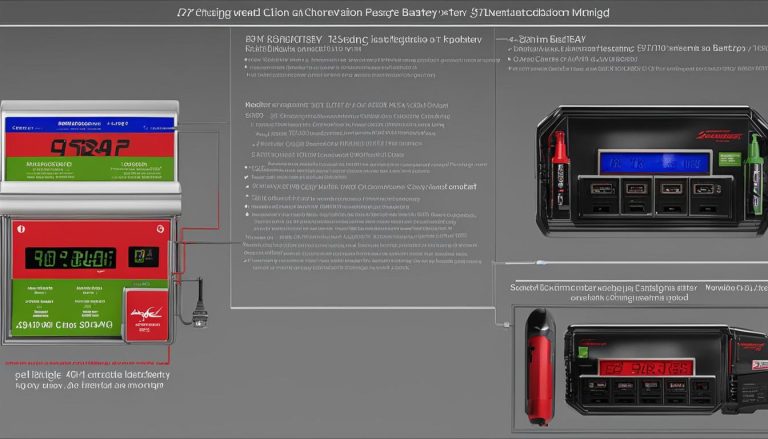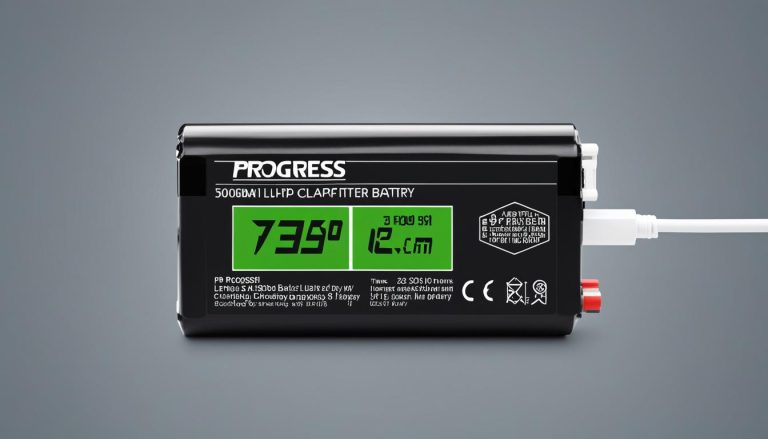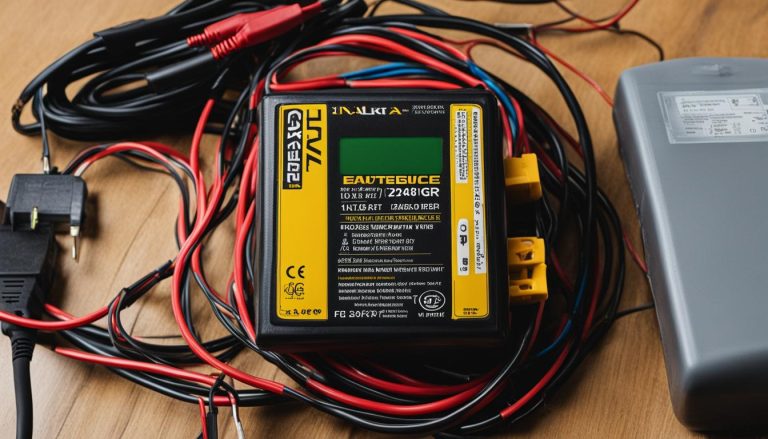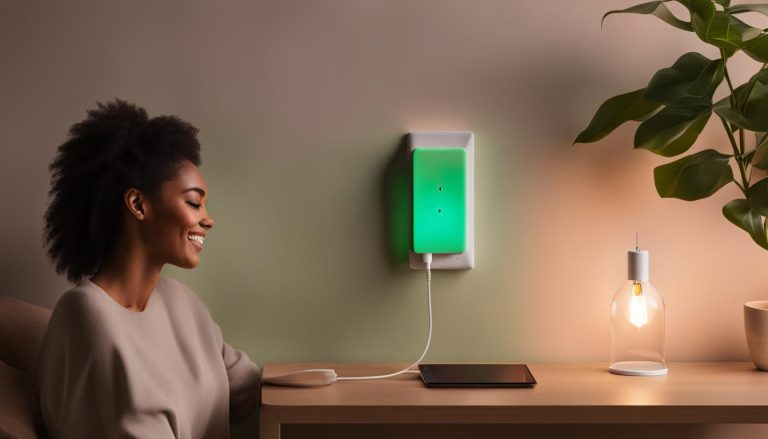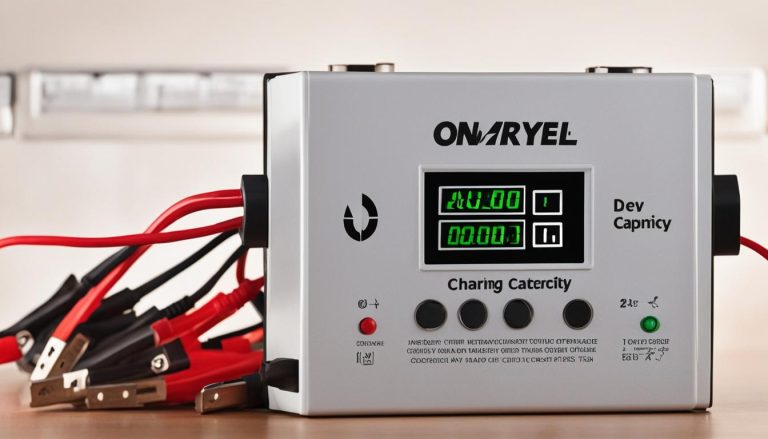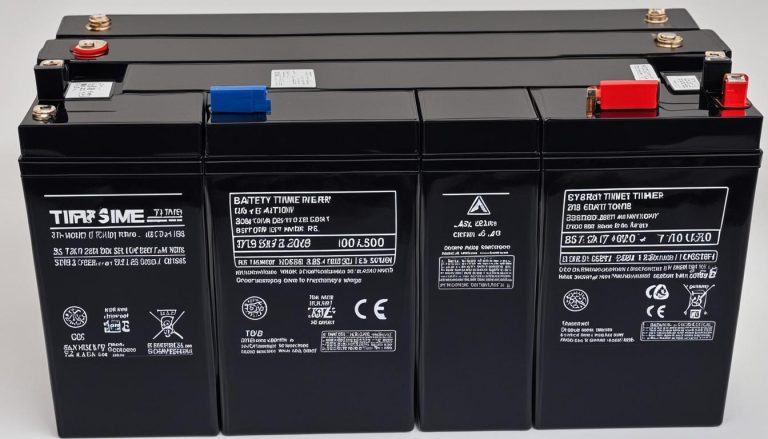Rechargeable Battery Lifespan Per Charge Explained
batterychargers.site and its partners may earn a commission if you purchase a product through one of our links
Rechargeable batteries, particularly lithium-ion batteries, have become an integral part of our daily lives, powering various devices and gadgets. But how long do rechargeable batteries actually last per charge?
According to Battery University, the average lithium-ion battery can last between 300 and 500 charge/discharge cycles. This means that if you charge your battery once a day, it should last for more than a year under ideal conditions. The lifespan of a rechargeable battery is often determined by charging patterns rather than an expiration date.
It’s important to avoid fully discharging the battery regularly, as this can significantly reduce its lifespan. Contrary to popular belief, lithium-ion batteries do not have a memory effect, so partial discharges and topping off the charge whenever possible actually help prolong their lifespan.
Additionally, keeping the battery cool by storing it in a cool, dry area can also increase its longevity. Finally, it’s worth noting that the stamped date on the battery can give you an estimated lifespan, but it’s not an exact representation and can vary depending on usage and conditions.
Key Takeaways:
- On average, lithium-ion batteries can last between 300 and 500 charge/discharge cycles.
- Avoid fully discharging the battery regularly to extend its lifespan.
- Partial discharges and topping off the charge whenever possible help prolong the lifespan of lithium-ion batteries.
- Storing the battery in a cool, dry area can increase its longevity.
- The stamped date on the battery provides an estimated lifespan but may vary based on usage and conditions.
Advantages of NiMH Rechargeable Batteries
NiMH (Nickel Metal Hydride) rechargeable batteries offer several advantages over alkaline or other rechargeable batteries. Firstly, they provide better performance in high-drain electronic devices, making them ideal for digital cameras, game boys, CD players, flash units, and more.
NiMH batteries have a larger capacity, meaning they can last 2-4 times longer than alkaline throwaway batteries or NiCd rechargeable batteries. They also have a longer battery life, capable of being charged and discharged up to 500-1,000 cycles.
In terms of cost, NiMH batteries provide a low cost per unit of device operation, making them a cost-effective option. Additionally, NiMH batteries have a stable performance due to their flat discharge curve, meaning they maintain high voltage for 80% of the usage cycle.
They also do not have a memory effect, allowing for easy charging and usage. Lastly, NiMH rechargeable batteries are environmentally friendly, reducing household waste significantly compared to disposable batteries.
Understanding Lithium-ion Battery Lifespan
Lithium-ion batteries, including lithium-ion polymer (LiPo) batteries, are widely used in various applications and sectors due to their improved performance. When it comes to solar power systems, lithium-ion batteries are particularly popular. They can be used in on-grid solar systems to enhance power storage or in off-grid systems to provide flexibility and capacity.
The lifespan of a lithium-ion battery is determined by the number of charging cycles it can tolerate before its performance deteriorates. A charging cycle refers to a full charge and discharge of the battery. Deep and shallow charging can have different impacts on lithium-ion battery life, but generally, shallow charging is recommended for prolonging their lifespan.
It’s important to avoid deep discharges and extremely high or low temperatures, as these can damage the battery. Proper storage and avoiding overcharging are also essential for maintaining the health of a lithium-ion battery. By following these practices and using an appropriate battery charger, you can maximize the lifespan of your lithium-ion batteries and ensure optimal performance.
FAQ
How long do rechargeable batteries last per charge?
The average lithium-ion battery can last between 300 and 500 charge/discharge cycles, which translates to over a year if charged once a day.
What determines the lifespan of a rechargeable battery?
The lifespan of a rechargeable battery is primarily determined by charging patterns rather than an expiration date. It’s important to avoid fully discharging the battery regularly to prolong its lifespan.
Do rechargeable batteries have a memory effect?
No, contrary to popular belief, lithium-ion batteries do not have a memory effect. Partial discharges and topping off the charge whenever possible can actually help prolong their lifespan.
How can I increase the longevity of my rechargeable battery?
Storing the battery in a cool, dry area and avoiding extreme temperatures can help increase its longevity. Additionally, following proper charging practices and not overcharging the battery are essential.
What are the advantages of NiMH rechargeable batteries?
NiMH batteries offer better performance in high-drain electronic devices, longer battery life, and a larger capacity compared to alkaline throwaway batteries or NiCd rechargeable batteries. They are also cost-effective and environmentally friendly.
How do lithium-ion batteries fare in solar power systems?
Lithium-ion batteries are popular in solar power systems. They can be used in on-grid systems to enhance power storage and in off-grid systems to provide flexibility and capacity.
What affects the lifespan of lithium-ion batteries?
The number of charging cycles a lithium-ion battery can tolerate before its performance deteriorates affects its lifespan. Deep discharges, extremely high or low temperatures, and improper storage can also damage the battery.
How can I maximize the lifespan of my lithium-ion batteries?
Shallow charging, proper storage, avoiding overcharging, and using an appropriate battery charger are recommended to maximize the lifespan of lithium-ion batteries and ensure optimal performance.

